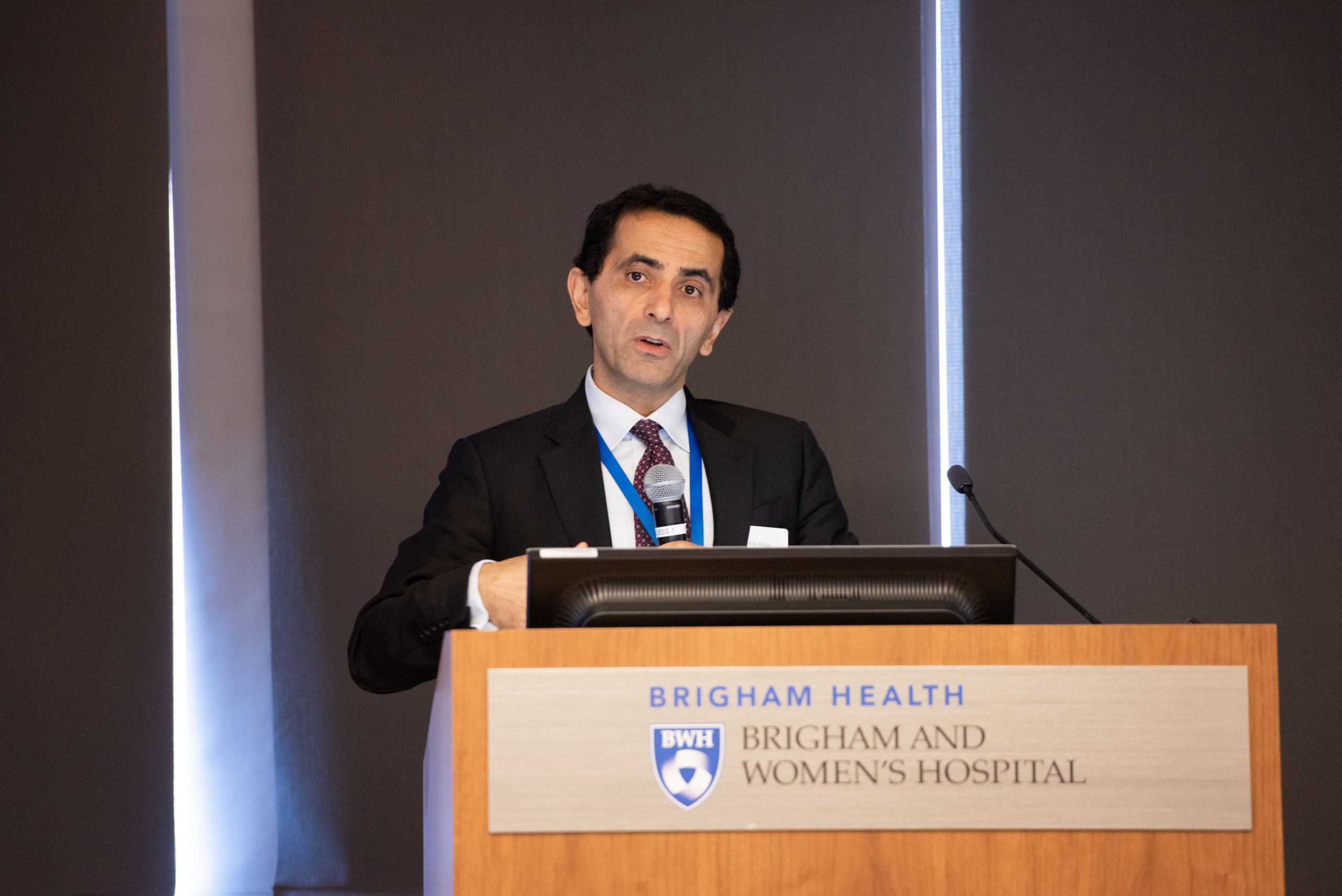
Reza Abdi, MD
Transplant Nephrologist, Brigham and Women’s Hospital
Associate Professor, Harvard Medical School
Nasim Annabi, PhD
Assistant Professor, Chemical Engineering and Bioengineering, UCLA
Ali Khademhosseini, PhD
Bioengineer, Brigham and Women’s Hospital
Professor, Harvard Medical School
Dennis Orgill, MD, PhD
Medical Director, Wound Care Center, Brigham and Women’s Hospital
Professor, Harvard Medical School
Improving the care of patients with severe burn injuries
Patients with burns that cover 90 percent of their total body surface area could have a mortality rate as high as 78 percent. Using skin grafts from a patient’s own body is the best approach, but that is often not possible with severe burn patients. In addition, patients universally reject cadaveric skin. Skin allografts is another approach, and they have several advantages over synthetic materials. However, rejection of allografts severely limits their potential efficacy and utility. Immunosuppressive therapy is not warranted either, due to a markedly increased risk of infections in burn patients.
To solve for this, Abdi and his team have designed an adhesive immunomodulatory hydrogel that can be crosslinked in situ to interface between the skin allograft and the wound bed of the burn patient with a goal of suppressing alloimmune responses at the site of the wound. Skin transplantation is an exceptional application into which this innovative therapeutic platform can readily integrated. Because this advanced technology can be easily translated to humans, it has enormous potential to reduce the high morbidity of patients with burn-associated wound injuries.
Reza Abdi, MD, is a transplant nephrologist at Brigham and Women’s Hospital (BWH) and an associate professor of medicine at Harvard Medical School. Abdi did his residency at the University of Pennsylvania and completed his renal fellowship at BWH. The Abdi lab is an inter- and multidisciplinary research group with interest in conducting basic and translational studies to identify novel therapeutic and diagnostic strategies to improve the outcome of transplantation. Among his numerous honors are the AST Basic Scientist Award, presented by the American Society of Transplantation in 2011, and the Advancing Research in Transplantation Science (ARTS) Award, presented by Pfizer Inc. in 2012.
